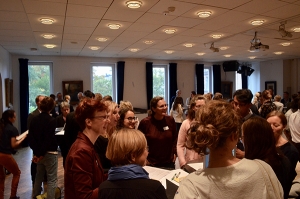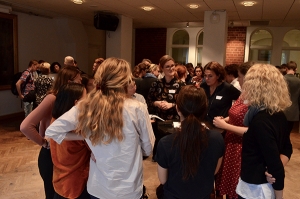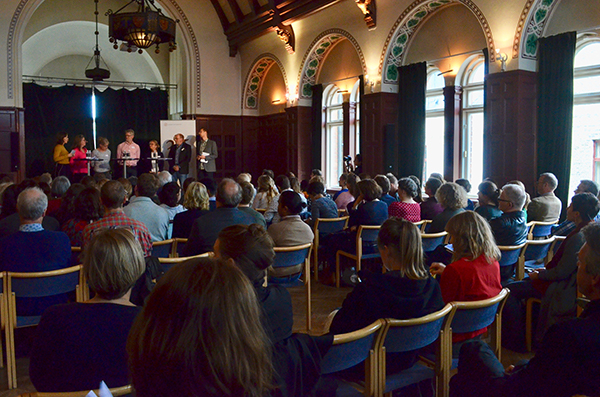Yesterday, Lund University held an event for future sustainability in education to consider the university’s past efforts and future solutions towards a more sustainable education.
In honor of the 10 year jubilee since Sweden’s Higher Education Authority (UKÄ) legislated for Swedish universities to work towards sustainable development within higher education, students and staff gathered in AF Borgen’s ‘Lilla Salen’. To start off the afternoon, a panel of five answered questions regarding current sustainability efforts, addressing existing problems and discussing why Lund University fell into the latter 75% of Swedish higher education institutions that do not have enough work promoting sustainable education.
The panel, questioned by two student representatives, came up with an array of responses as to why Lund University fell into the 75% who did not score well enough in sustainability. The common problems agreed upon were the overall structure of the system in place, lack of collaboration among faculties, and difficulty in measuring the broad issue of sustainability in education.

The panel led into an engaging workshop set in AF Borgen’s ‘Nya Fest’ room. Ten tables were set up to represent ten themes within sustainability including:
- Sustainability in education
- Travel and virtual meetings
- A sustainable campus
- A healthy work and study environment
- Student involvement
Each table had one leader, a note taker, and at least one expert in the area. Students and teachers gathered around each of the workshop tables for a spirited discussion on the themes, taking special interest in how Lund University can work according to the UN Sustainable Development Goals, and coming up with potential solutions for improving sustainability. After the first 30 minutes, everyone switched workshop tables, allowing participants to explore another theme and meet new people.

Finally, the group made their way back to ‘Lilla Salen’ to share their collective ideas for the future of sustainability in education at Lund University. Four of the groups shared their ideas, discussing everything from creating a green office that inspires and advises on sustainability, better representation by making English the official language of future sustainability events, divesting in unsustainable clients such as fossil fuel companies, and increasing education and integration for teachers. Now with an array of ideas at their disposal, it is up to the University to implement them into a plan for a more sustainable future.









